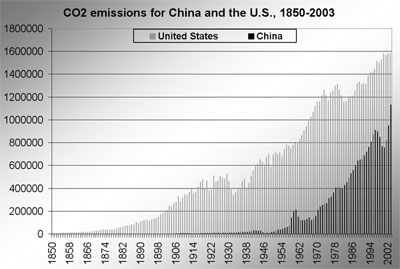Improving energy efficiency will require overcoming market distortions
Improving energy efficiency will require overcoming market distortions
mongabay.com
May 20, 2007
In a new study, McKinsey&Company, one the world’s most respected management consulting firms, reports that the world should be able to cut energy demand growth by half over the next 15 years without compromising economic growth. However it says that market forces along will not drive the transition—targeted policies will be needed to overcome present market failures and policy distortions.
McKinsey says that global energy markets are “rife with market inefficiencies and distortions that explain why consumers and companies fail to capture savings from higher energy productivity.” Chief among these is that consumers lack information they need to make smarter energy use decisions. Further, government policies, such as fuel subsidies and lack of metering, weaken price signals and incentives that would otherwise drive users to choose more energy efficient options.
The study makes a number of recommendations, including ending fuel subsidies; tightening fuel-economy standards; reducing standby power consumption of applications; adopting compact fluorescent lighting in place of incandescent lighting; implementing green building codes like better insulation and HVAC (heating, ventilating, and air conditioning) systems; itemizing utility bills for consumers; and using realistic internal rate of return (IRR) hurdle rates for energy-saving investments to encourage financing of energy-conservation projects. All these recommendations have been previously advanced by Amory Lovins of the Rocky Mountain Institute, an energy policy think tank.

The study shows that while China will soon surpass the United States as the world’s largest consumer of energy, the U.S. will have the highest energy use per capita for the foreseeable future. |
McKinsey concludes, “The challenges of climate change and the security of energy supply often appear so huge as to be insurmountable. However, we already have in our hands the potential to abate accelerating energy demand in a practical, economically attractive way.
Related articles
16 cities to get energy-saving retrofits
(5/17/2007) Sixteen cities will get financing to make buildings “greener” through environmental renovations, former President Clinton announced Wednesday at the C40 Large Cities Climate Summit in New York, where mayors and local government officials are meeting to discuss strategies to flight global warming. The green building initiatives will cut carbon emissions and reduce waste.
Cost of stabilizing climate 0.1% per year
(5/4/2007) The Intergovernmental Panel on Climate Change (IPCC) released its long awaiting installment on climate change mitigation, arguing that the costs of offsetting global warming will be much lower than some claim. The IPCC estimates that emissions can be reduced rapidly using existing technology at a cost of 3 percent of GDP, or 0.12 percent per year over the next 25 years, though new technologies could further reduce this cost. While the projections are encouraging, they may be conservative. Some analysts, including the well-respected Amory Lovins of the Rocky Mountain Institute, have calculated that emissions targets that would stabilize the climate could be achieved at no net cost and possibly even a profit. Even McKinsey & Company, a leading management consulting firm, agrees, putting the net cost of reducing emissions by 46 percent at zero.
To fight warming, Canada will ban incandescent light bulbs by 2012
(4/25/2007) In an effort to fight greenhouse gas emissions, Canada plans to ban use of incandescent light bulbs by 2012, said Natural Resources Minister Gary Lunn. Canada follows Australia as the second country to announce a ban on the inefficient bulbs. California legislators have proposed a similar ban for 2012.
U.S. can cut oil imports to zero by 2040, use to zero by 2050
(3/29/2007) The United States could dramatically cut oil usage over the next 20-30 years at low to no net cost, said Amory B. Lovins, cofounder and CEO of the Colorado-based Rocky Mountain Institute, speaking at Stanford University Wednesday night for a week-long evening series of lectures sponsored by Mineral Acquisition Partners, Inc.
Efficiency improvements could cut global energy demand significantly
(11/29/2006) Growth in global energy consumption could be reduced by more than two-thirds over the next 15 years through energy efficiency efforts according to a study released Wednesday by the McKinsey Global Institute.







